The streets of Pune used to echo the sound of cycle bells in the mornings and evenings during the early years when people took their cycles to work and back home. Today, the cycle bells have been replaced by the honks of motor vehicles that crowd the streets 24×7.
International Award for Sustainable Architecture Awards 2018
Second Award | Category: Transportation
Architects: Prasanna Desai
Studio Name: Prasanna Desai Architects
Team Members: In Collaboration With Innovative Transport Solutions , I Trans , Delhi & Centre For Environmental Education Cee , Pune, Ar. Chetan Sodaye, Ar. Jagdish Temkar, Ar. Vinaya Thakur
Country: India
Website: www.prasannadesaiarchitects.com
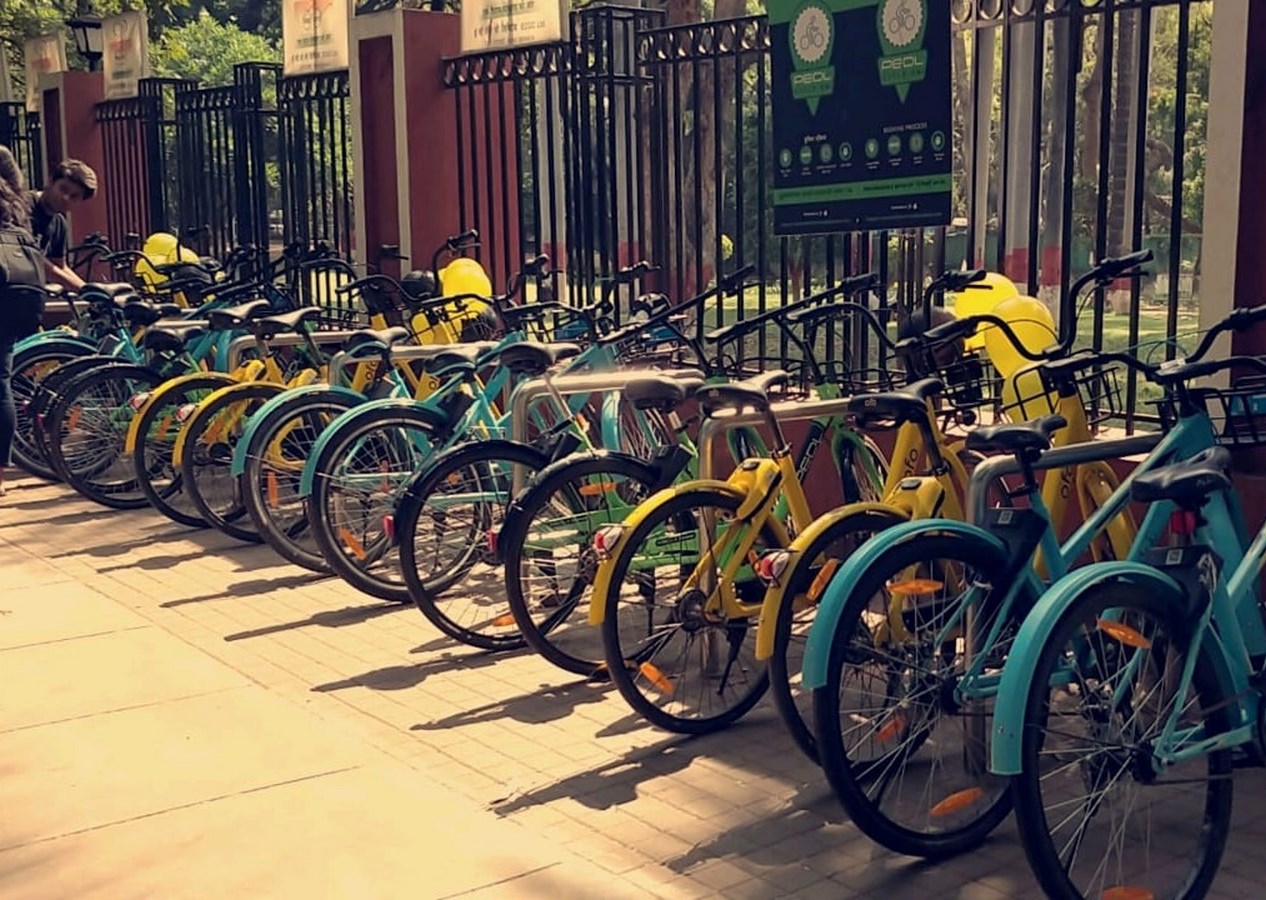
However, the usage of cycles would have sustained, if cycles were given priority in terms of development of necessary infrastructure. The existing infrastructure was not well executed, discontinuous, and poorly maintained, which contributed to people abandoning the cycle.
The work for preparation of the Pune Cycle Plan initiated in January 2016 when Pune Municipal Corporation appointed the consultants to undertake the situation analysis, studies and surveys, public and stakeholder consultations, etc.
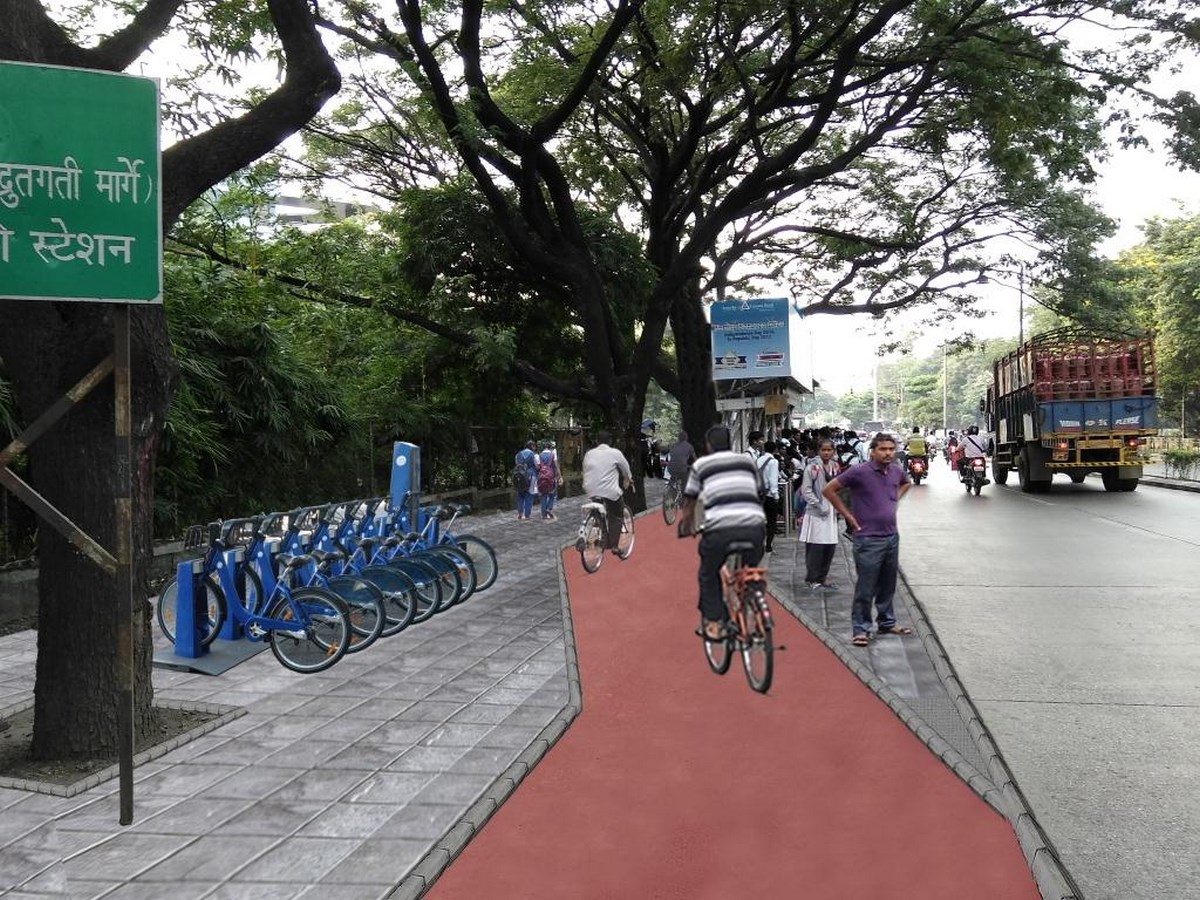
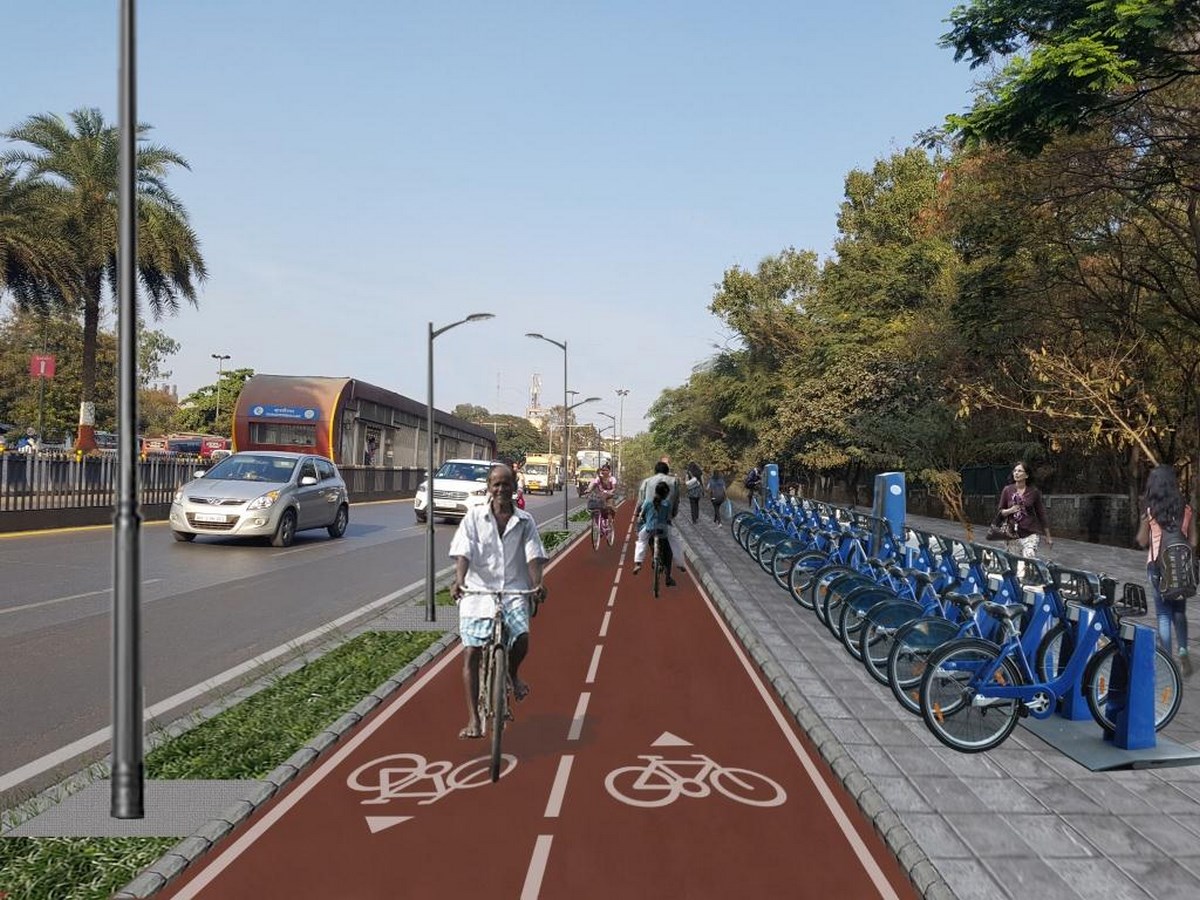
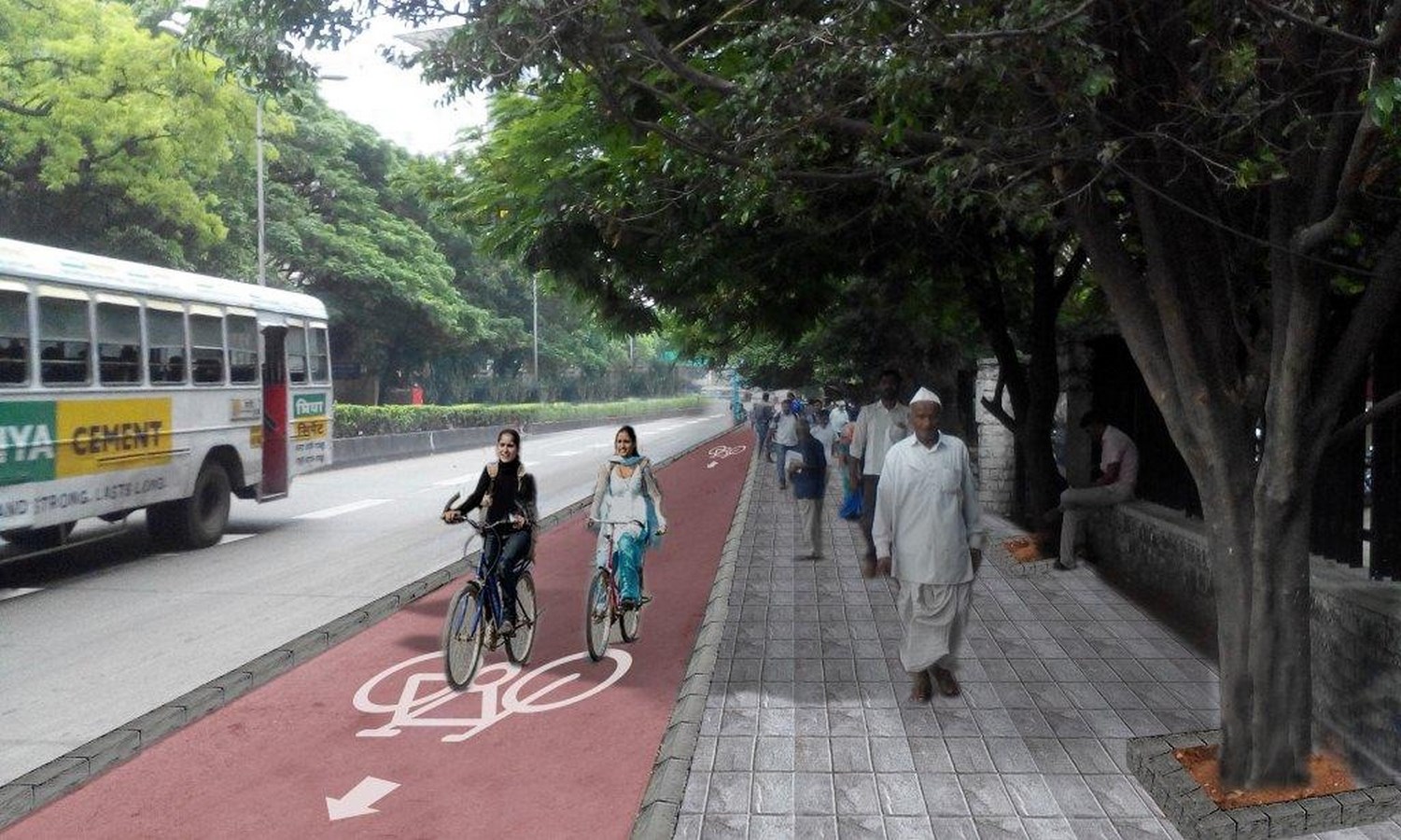
As part of the proposal, the team worked out a network of streets that aimed at achieving Complete –
Continuous – Connected and Safe Cycle Network in the City. The network is broadly divided into three types of elements i.e., a) Segregated, dedicated Cycle tracks, on major streets with high volume of traffic and high vehicular speeds, such as Satara road ( arterial road ). b) Painted Cycle Lanes, a shared but prioritized right of way for cyclists on city streets with comparatively less volume of traffic and slow vehicular speeds. c) Shared Streets, which form the access roads in a neighborhood, with very less volume of traffic and low vehicular speeds, treated with speed calming measures and necessary signages to ensure safety of cyclists.
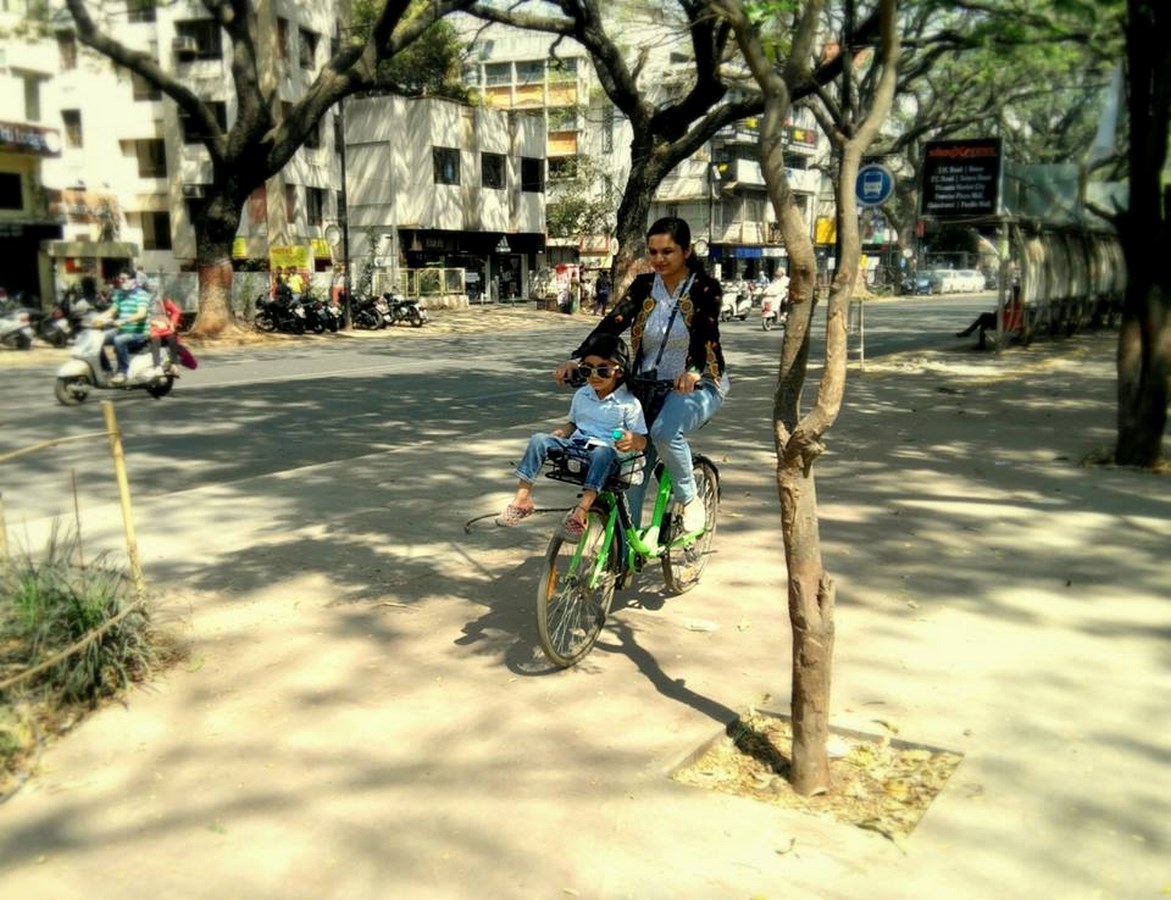
The cycle plan also includes the proposal of greenways along the lungs of the city such as hills, rivers, canals etc. by creating corridors dedicated to leisure cycling and which could also be used as main transit routes by cyclists.
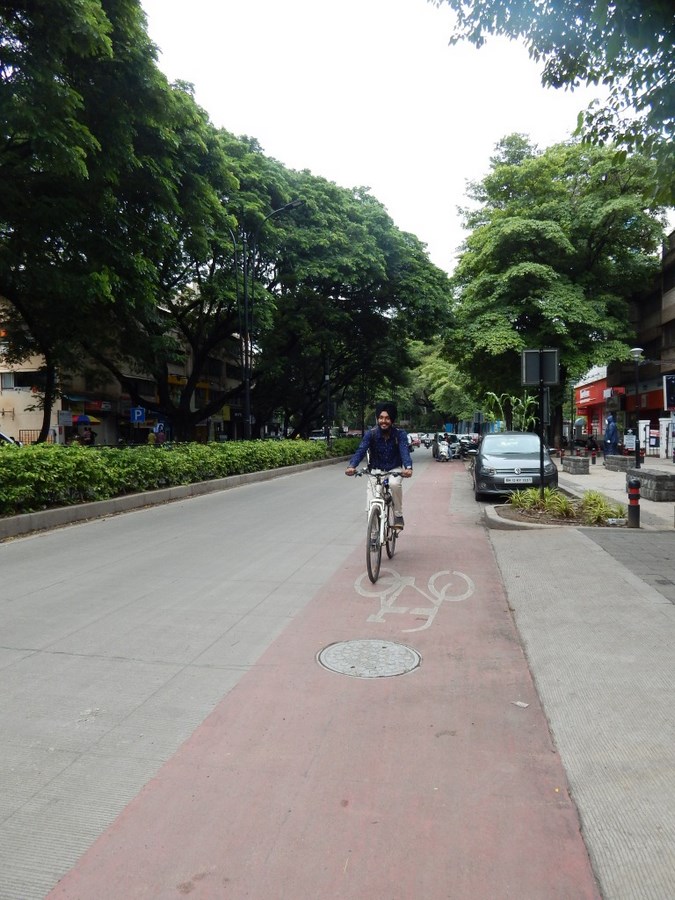
The Pune Cycle Plan also includes proposals for Public Bike Sharing Systems (PBS) and the creation of a Bicycle Department which was recently formed under the Traffic Dept., PMC. As part of the PBS, MoU’s have been signed with various PBS vendors and they have already placed around 4000 cycles and proposed to add about 1 lakh cycles in the following years. To aid this, around 800 cycle parking locations had been initially identified and marked across the city, with the number gradually increasing as per demand.

The firm with the help of J. B. Mobility formulated the “Urban Cycle Design Guidelines” as part of the Pune Cycle Plan, that would serve as a reference to all kinds of cycle related planning and design in the city of Pune. The city has already seen execution of few segregated Cycle tracks under the initiative of Pune Street Program (PSP) since the completion of the Pune Cycle Plan. Satara Road, J.M. Road and University Road are three arterial streets which have Cycle tracks executed as part of design.
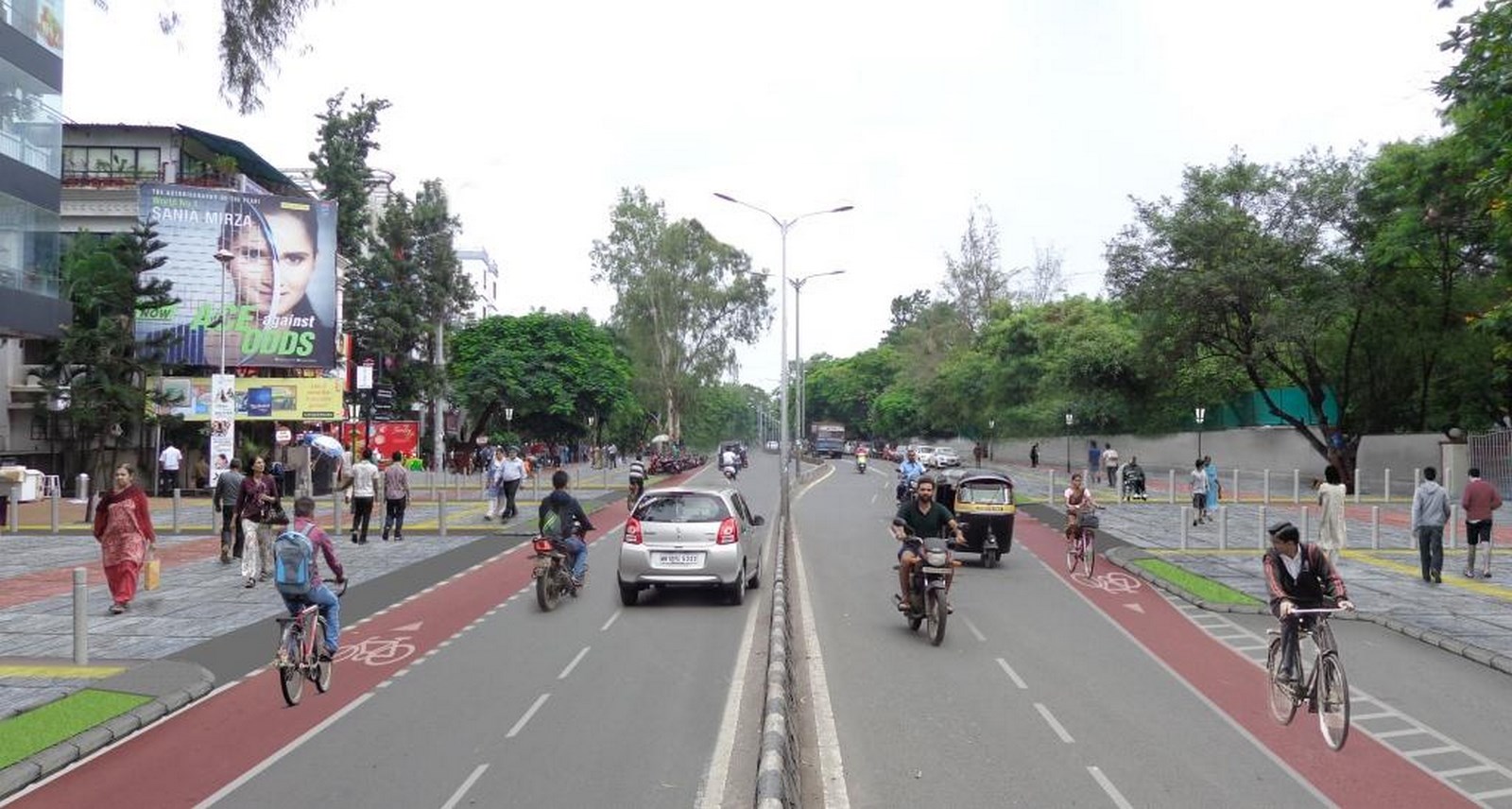
Several streets being redesigned under various projects, of which majority are arterial roads, that have cycle tracks as part of their design. If this trend continues, that has led to the formation of a Cycle Department, the city is likely to see a large number of cycles back on streets with their cycle bells resounding like before.
Another great opportunity. APR’s next award Urban Design & Architecture Design Awards 2018 is open for Registration.


